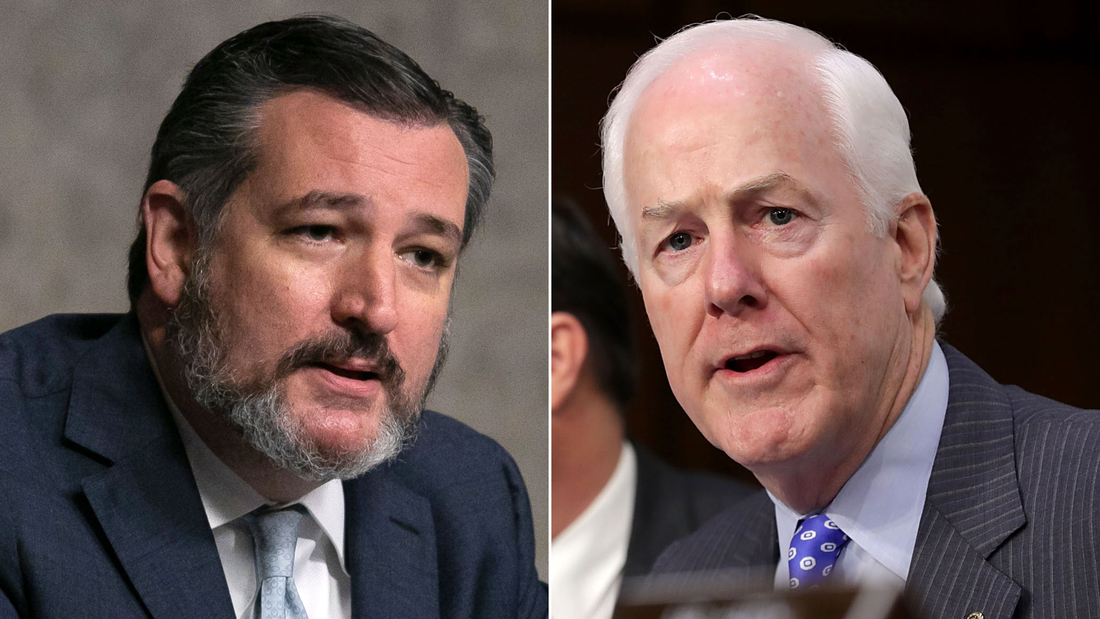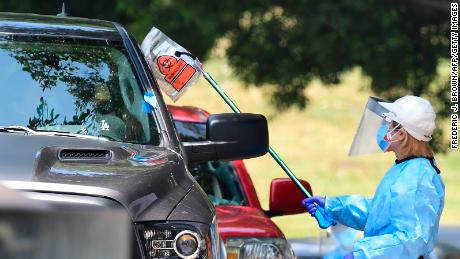GOP Sens. Cornyn and Cruz say they don’t understand why federal funds are being pulled from coronavirus testing sites
“I said to my people, ‘Slow the testing down, please,’ ” the President added.
Administration officials have said that slowing down testing has not been requested and his comments were made “in jest,” but Trump maintains that he wasn’t kidding.
A Health and Human Services spokesperson confirmed to CNN that the 13 Community-Based Testing Sites, seven of which are in Texas, would no longer receive direct funding.
“As we approach the agreed upon transition date of June 30 for the state-run sites, the federal government is broadening its community testing support to a more sustainable model,” the spokesperson said, adding that the transition will include “continued support of retail and pharmacy partnerships in more than 600 locations” and “offering COVID-19 testing at over 1,300 Federally Qualified Health Centers nationally.”
But several lawmakers from Texas, including Republican Sens. John Cornyn and Ted Cruz, say they do not understand why the federal assistance is being pulled as their state sees more and more coronavirus cases.
“Frankly, I didn’t understand what they were thinking,” Cornyn told CNN on Thursday.
In a joint letter sent to Health and Human Services Secretary Alex Azar and FEMA Administrator Pete Gaynor on Thursday, Cornyn and Cruz urged the administration “to grant an extension of the program for the testing sites in Texas,” which they said are “critical to Texas’ testing capacity.”
“Texas is currently experiencing a rise in confirmed COVID-19 cases. In the last two weeks, daily new cases, the overall positivity rate, and hospitalizations in Texas have all increased. Some of the state’s largest cities — where these CBTS sites are located — are experiencing single-day records of new cases,” the letter said. “Now is not the time to end a program that is working and successfully increasing testing capacity — especially for underserved communities in the state. Due to the recent rise of COVID-19 cases in Texas, cities need additional time to prepare for the transition to state and local control of the testing sites.”
There were initially 41 sites across 12 states and now, there are 13 in five states — Texas, Colorado, Pennsylvania, Illinois and New Jersey.
Assistant Secretary for Health Brett Giroir relayed on a call with reporters on Wednesday that states such as Texas could choose to fund the sites with the $10 billion-plus allocated to them last month to support coronavirus testing.
He said the federal government would “continue to increase testing across the board” despite Trump’s remarks.
“We’re going to increase the quality of testing. The diversity of testing. The accessibility of testing. And our targeting of testing to the needy and the vulnerable,” Giroir added.
CNN’s Kristen Holmes, Lauren Fox, Priscilla Alvarez, Ali Zaslav and Daniella Diaz contributed to this report.
![]()




